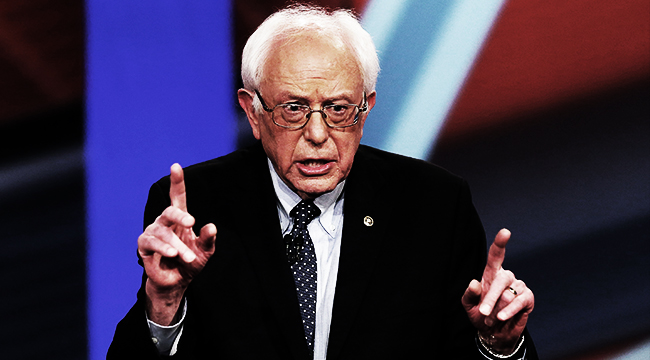
Bernie Sanders’ new health-care bill, which will attempt to reform American health care into a single payer system, is arriving today. While it has no chance of passing Congress, let alone winding up on Trump’s desk to be signed, many Democrats seen as the future of the party — including Cory Booker, Kamala Harris, and Elizabeth Warren — have co-sponsored the bill. Really, it serves as an announcement: The Democratic party considers single-payer at least worth talking about. So what does it mean, practically speaking?
While the full text of the bill has yet to be pored over by policy wonks and lawyers, we know what it would do to the man on the street:
- In the broad strokes it’d resemble the health care systems of other nations. While reports about the bill remain vague. It would do away with the current system, where Americans are insured via private companies through their work or the ACA exchanges. Instead, most Americans would receive a “Universal Medicare Card” that would allow them to receive care from medical facilities for every aspect of routine care, from hospital stays to dental work. Private insurance would still exist, for cosmetic surgery and non-essential procedures, but deductibles, co-pays, and premiums would be banned. All of this would be funded by tax increases.
- That said, make no mistake, the consumer would still be on the hook. Sanders’ bill would have consumers pay out of pocket for drugs, up to $250, and generic drugs would have incentives for consumers to buy them. The government would be allowed to negotiate price controls with pharmaceutical companies, which would in theory drive down prices, since the government, of course, buys in bulk.
- The most obvious change would be that there would be more in your paycheck (most likely): While the tax bills of working and middle class may rise modestly, health care costs average over $10,000 per American and are rising at nine times the rate of inflation. Getting rid of that cost at a stroke would, short term, put more money in most pockets. It would also get rid of a lot of the red tape patients currently deal with, which comes from the interaction of government, hospitals, and private insurers. Instead of figuring out which doctor at which hospital takes which insurance, you just go to one that can see you. Of course, this won’t eliminate the bureaucracy of care completely, but it will largely shift the burden away from patients.
That said, there are also some fairly serious drawbacks. Sanders’ bill will mostly likely face criticism for how it treats drugs and drug prices. While generic drugs work for most of us, for some people, the side effects of a medication are too much, or because of their biology, their drug is less effective than one still under patent. Why should those people be forced to pay more? And what will this government system do if they simply can’t afford the drug?
Another problem every health care system struggles with is that essential care isn’t an objective thing, but an ever-moving social target littered with moral quagmires. Is a vasectomy “essential care?” Should cosmetic surgery be considered essential if it’s for patients who have been severely disfigured? Should taxpayers cover procedures with a low chance of success when they’re the only hope a patient has?
Any single payer system puts the government squarely in the middle of these disputes. In some ways, it already is: Trump claimed that “tremendous medical costs” were why he attempted to ban the transgender community from serving in the armed forces, and among the most powerful protesters against the American Health Care Act were members of ADAPT, a disability rights activist group that pointed out their lives were being put at risk.
None of this, really, is of any concern to Sanders. Nobody is convinced his bill will so much as see the floor for a vote, let alone pass. But we need to start discussing these questions. One thing the entire political spectrum agrees on is that health care in America needs to be fixed, and now, it’s just a question of what repairs we do, and what new problems they might create.
